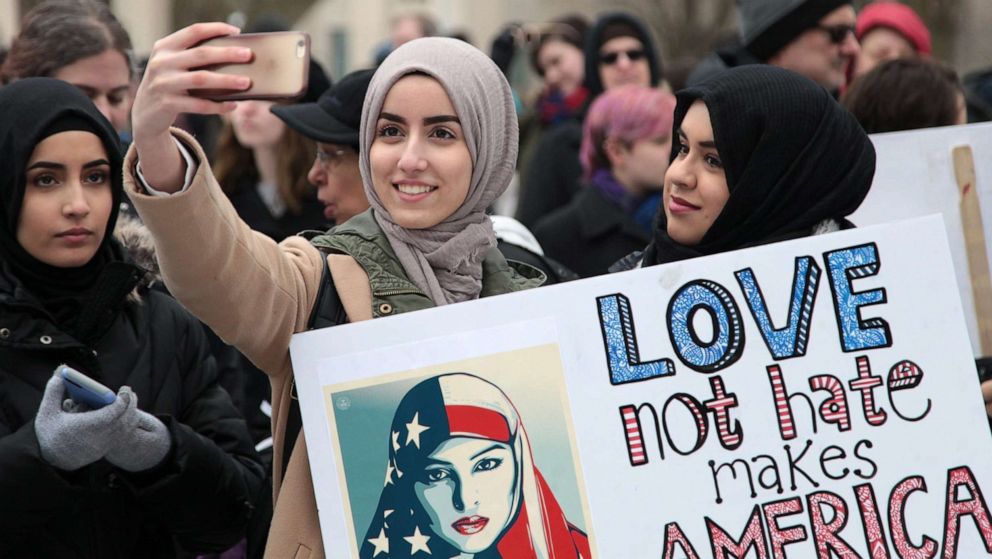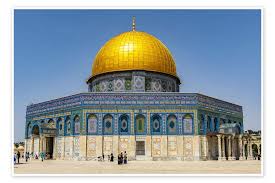by Faria Chad and Heena Lotus
When we hear the words Islam and/or Muslim, especially within the western world, it has slowly become associated with unfair terms like terrorism due to supposed extremist ideologies within the context of the Islamic world. This begs the question, if the religion of Islam is practiced on a very conservative or literal level, does this encompass that the religion itself is harmful or hateful in nature? Especially if it is practiced as a way of life as opposed to merely a religion? The irony in this question is that Islam, at its very core, is the equalizer amongst race and socio-economic class. It was meant to be followed not just as a label or a religious ideology but rather a way of life that helps guide Muslims in all factions of human life, whether it be gender roles, morals, the treatment of women, what is permitted in war, social justice, ethics, politics and even economics. Islam’s intent was to allow humans to evolve from their primitive minds to a way that honored all of Allah’s creations and their very own intellect that was meant to benefit society. It is a religion that teaches us to overcome nafs, theArabic word for ego, so our thoughts and actions align with the collective good as opposed to the selfishness of human individualism.

Islam is a very peaceful and compassionate religion that promotes brotherhood and unity. It has been practiced by millions of people for over 14 centuries and is also the fastest growing religion in the world with almost a quarter of the world identifying themselves as Muslim. The teachings of Islam promote respect for human life, dignity, and harmony. However, in the last few decades, the religion has become inaccurately associated with the word terrorism, leading to a growing perception that Islam is a religion of violence and hate. It is important to note that any acts of violence carried out in the name of Islam are not representative of the true teachings of the religion. Terrorism in general tends to unfairly be associated with religion when it is reactionary in nature and a symptom of political and economic unrest. Islam does not support this form of resistance or warfare, if anything, it condones it since terrorism does not account for the sanctity of all human life.
A ripple effect from this misconception is that thousands of Muslims are forced to explain themselves to disassociate their religion from the word terrorism. While Muslims search for ways to absolve their identities and religion from violence, it’s important to consider how language can incite Islamophobic ideologies. One unproductive and damaging term often used is the word extremist. If anything, the more extreme a Muslim practice their religion, the more peaceful and compassionate their way of life becomes. Looking at terrorism in the Islamic world is merely a political movement, rather than the extent of how deeply a Muslim practices his or her very own religion.
These supposed Western definitions of Islam have very detrimental implications and invalidate the true teachings from the Quran, the holy book of Islam. The word extremist became more widely used in the late 20th century around the same time the western world was at war with the middle east in hopes to control territory and gain resources. The middle east being stabilized and united poses a threat to western economies that are contingent on imperialism to maintain hegemony and power.

As Islamophobia has begun to arise in recent years, state-sponsored media, government, and public discourse has begun using the term extremist in association with Muslims. Muslims alike, not being able to separate their own religion from this propaganda, have begun using the term extremist when describing factions within the Islamic world. They have unknowingly created an association between Islamic religiosity to unrelated terrorism. The term extremist insinuates that if a Muslim practices their religion too deeply then they are at fear of becoming a terrorist. This baseless association of causation leaves both Muslims and non-Muslims ultimately afraid of Islam as a whole. Suddenly foundational covenants like a hijab, a religious headscarf, have become relabeled as a symbol of extremism or even oppression. These ultimately end up being used as weapons for public fearmongering. This ends up indirectly stripping Muslims of their freedom to practice their religion freely (which is a healthy part of democracy) and deliberately further feeds into Islamophobia.
Throughout history, political leaders have often used religion as a tool to control and influence people. The irony is that when religion is used as a tool for control, the flaw is not in the religion but rather mere humans who are abusing religion out of context for their very own selfish purposes. Unironically, these political leaders don’t truly embody their respective religious teachings but rather use it to justify violent conflicts that are rooted in economics or politics. Examples of this type of reign include Constantine the Great, The Spanish Inquisition, the crusades, Slobodan Milosevic which is nowhere near the exhaustive list of examples within history. The guise of religion is often successful in gaining control because it creates a false sense of divine legitimacy and justifies oppression amongst its followers. Islam is by no means the first religion that has been used by unjust leaders to control people. However, it has faced some of the most damaging and lasting impacts from this association in recent times.
If terrorists hide behind the façade of religiosity, what does the Quran say about violence? Many of the religious texts about violence used by terrorists and anti-Muslim sentiments are taken out of context. Verses that encourage fighting were sent to guide Muslims during a time when they were under attack and faced persecution from pagans. Additionally, the verses explained how violence was only permitted for purposes of self-defense. Although self-defense was permitted in these specific circumstances, it was considered a last resort since peaceful resolution was always preferred to the alternative. The specific verses on using violence that were permitted (in very specific circumstances) were not intended to be used as a blanket authorization. The fundamental principles of Islam promote the belief in the sanctity of human life. The Quran states that taking a single life unjustly is equivalent to killing all of humanity. These principles serve as strong deterrents against violence and encourage coexistence, regardless of religion or background. In fact, Islamic teachings even allow Muslim men to marry women from other Abrahamic religions without forcing them to convert and still hold these men accountable to treating their non-Muslim wives justly under Islamic law.

Additionally, Islam teaches that as one achieves pure religiosity, their speech and actions become clear from violence and hatred, a complete paradox to the implication wrongfully painted by the term extremist. This further begs the need to re-label the term extremist as the antithesis of religion especially when used in connection with Islam. The English language is no stranger to using words that are problematic or have racist roots. Language can be very harmful; many English words have already been purged in order to promote a more tolerant and politically correct language. So, this begs the question: why can’t the term extremist be eliminated when associated with Muslims?
The simple answer to this may be that most people do not question this damaging association perhaps due to social conditioning or a lack of knowledge about Islam. The journey to dismantle Islamophobia and eliminate the use of problematic language must start with a call to action. A call to action that requires a concerted effort from the Muslim community and the broader society. It’s time to discourage and rescind the use of the term extremist, instead we must simply call them what they are, terrorists. Implementing this change on an international scale will require complex tasks that involve cultural, educational, and policy changes. Whether conversing in private or publicly, media outlets and the public should be encouraged to use more inclusive language.
Similarly, Muslims and non-Muslims alike should provide resources and create a safe place to educate people on how to avoid discriminatory language. The goal is to shift the current public norm and reclaim Islam from terrorists. This change must start with us, one conversation at a time. Muslims must lead and stand at the forefront of this cultural shift. Afterall, we as Muslims, must always be ambassadors of our very own faith. We are not voiceless and cannot wait for others to decide when it will be the adequate time to build more inclusive behaviors and language towards Muslims. The change starts within our community and must spread like wildfire so Islam can be known for what it truly is as opposed to it being defined by the outside world that was educated on propaganda on Islam rather than the truth.

Faria Chad is an Assistant Clinical Professor of Pharmacy and a Adjunct Professor at the School of Medicine. She can be reached at [email protected]

Heena Lotus is the co-host of The Muslim Street Podcast, She can be reached on X (Twitter) @intrepidlotus



